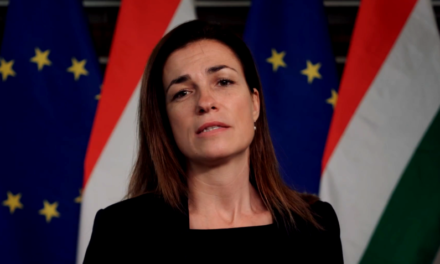If they had not caused so much damage to Hungary, we could even call it amusing the news that EU ambassadors approved a draft law that would allow the use of spy programs to reveal confidential journalistic sources. Written by Gábor Sebes.
Do we still remember the Pegasus scandal, when a series of governments were accused of illegally wiretapping opposition opponents and fact-finding journalists?
The background of the case was that the US government wanted to disable Israeli cyber defense companies that were well ahead of them and wanted to acquire their intellectual property. And Pegasus is a product of the Israeli NSO. As a secondary result, they taught a lesson to the nationalist Indian government, Saudi Arabia, Azerbaijan, Bahrain, Kazakhstan, Mexico, Morocco, and last but not least, Hungary and Poland.
In almost all of the countries listed, the opposition took up the issue, portrayed the governments as anti-democratic and illegally eavesdropping on oppositionists and journalists, and they got the ammunition for this from a press consortium.
The whole affair reeks of secret service machinations.
Amnesty International, which took the main role, did not hand over the list of the alleged intercepted persons to the Hungarian data protection ombudsman, who was conducting the investigation, claiming that it did not have it. They were forced to issue a statement from the list of 50,000
“Amnesty never called this list the 'NSO Pegasus Spyware List', although some media around the world may have done so. Amnesty and their investigative journalists and editors have made it very clear from the start that 'this is a list of numbers that may be of interest to NSO clients' and these are various governments around the world."
At the same time, the press consortium, which was also funded by the Soros Open Society Foundation, treated the list as if it included those who had been wiretapped, so the 300 Hungarians on it were also framed as victims.
A total of five devices from Hungary, Panyi Szabolcsé, András Szabó and three unknown politicians, were examined, and two journalists and one unknown were found to be infected.
Anyone who claims after this that there is evidence for the wiretapping of more than three people in Hungary or more than 37 people in the world with Pegasus, or that the 50,000 list can be attributed any meaning, is a dishonest liar.
Well, on June 8, the European Union's Agency for Fundamental Rights issued its report for the year, in which it blames Hungary for the fact that two years ago, the government wiretapped several government-critical journalists, politicians and entrepreneurs with the Israeli spy software Pegasus...
Although the European Commission established that the use of secret service tools is the competence of the Member States, the European Parliament still sent a committee to investigate the use of Pegasus.
In May, the committee voted that ""The use of spyware in Hungary was part of a pre-calculated and strategic campaign aimed at destroying press freedom and freedom of expression by the government".
Szabad Európa wrote: "According to Amnesty International, in the case of Hungary alone, at least three hundred persons were interrogated without their knowledge. Since then, the Hungarian authorities have not provided any information about the persons being observed, nor have they given any reasons for their observation. Among the persons observed were journalists, lawyers, representatives of civil society organizations, government officials, and the mayor of Gödöllő."
Against this background, it is particularly interesting and – if they had not caused so much damage to Hungary – the news that EU ambassadors approved a new draft law that would allow the use of spy programs to reveal confidential journalistic sources for reasons of national security is amusing.
The civil society organizations, otherwise operating as free teams of the EU, warned that the law would have a "chilling effect".
The draft legislation creates an EU-wide legal basis for national intelligence services to install spyware on the phones and computers of journalists, including British reporters working in the EU.
At the same time, this is also another voluntary withdrawal of competence by the EU, since this is, as I wrote, a competence of the Member States.
Not only the common legal reasons – national security, the fight against terrorism, arms and human trafficking, organized crime – would be acceptable. The new ones list all 32 offenses required for an EU arrest warrant, as well as any offense punishable by more than five years in prison. Thus, even a crime against property or a violation of copyright can be a reason. France is the main supporter of these facilitations.
The European Commission welcomed the legislation and called for its adoption.
The EU ambassadors will now bring the draft legislation to the European Parliament, which will then develop the final text.
"It is a significant step towards the first EU rules for the protection of media pluralism and freedom. We must all do more to protect journalists," said Věra Jourová, Vice President of the European Commission, who proposed the legislation last year.
"I hope that the Parliament can work quickly and we will reach a final agreement soon".













